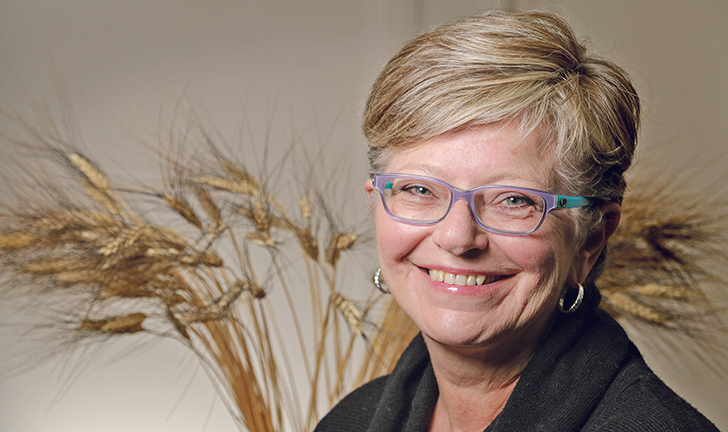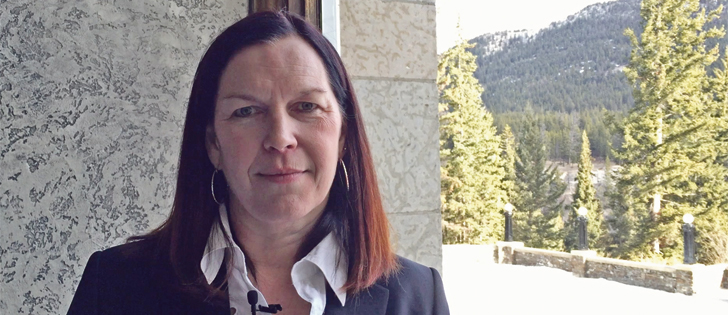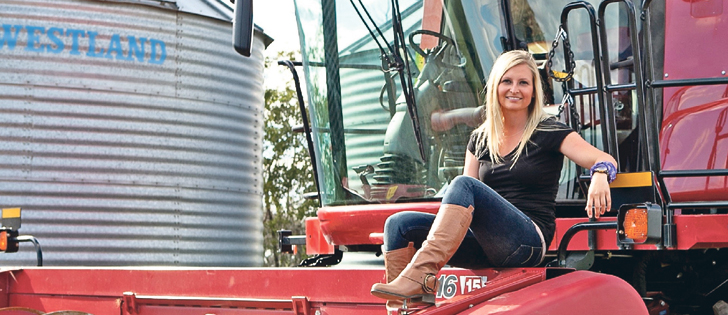This is the first of a three-part series looking at the role women play in agriculture, how it has changed and what the future holds.
This is the first of a four-part series looking at the role women play in agriculture, how it has changed and what the future holds.
SUMMERLAND, B.C. — When Iris Meck got a management job right out of university in 1978, she didn’t consider it a big deal.
Yet by joining the Cargill management team, she became a rare find for that time — a woman working in a management position at a major agricultural corporation.
However, there were no special announcements or added privileges. “I think those were the days where, number one, university students were lucky to get a job. Number two, as a female and not being a nurse or a doctor, it was important for me to find a position in the field I wanted to take, and that was agriculture crop science, and I didn’t want to be a sales rep for a crop protection company.”
Read Also

Canadian Food Inspection Agency extends chronic wasting disease control program consultation deadline
Date extended for consultation period of changes to CWD program
Almost 40 years later, Meck now runs Iris Meck Communications Inc., which has created and co-ordinates the Advancing Women in Agriculture conferences held twice each year. This year, they are planned for March 6-7 in Calgary and Oct. 30-31 in Niagara Falls, Ont.
Meck said she hopes that by providing an event that enables women to share their stories, it will help them avoid some of the obstacles of the past and move forward more quickly in the future.

Iris Meck, former manager at Cargill and now owner of Iris Meck Communications Inc., says she was drawn to the cause for women’s equality to pave the way for the next generation. | Mike Drew photo
When Meck began, it was different era. Traditions were followed. Meck said she expected no special treatment, but she also wanted to be judged equally for the work she did.
Few other women worked in the industry at the time, especially in positions that required them to go out into the fields and farmyards.
“So what it taught you was endurance and strength and it gave you character and personality to handle anything anybody would throw at you,” she said.
Meck emphasized that Cargill was a good company to work for. In fact, Cargill and many other corporations are key sponsors of Meck’s Advancing Women conferences.
She said she was often asked at conferences and meetings if she’d rather be at home having children and being married.
“And that’s the type of attitude that we had to face then, and I think to some degree that’s what women face today in some areas and challenges that they have.”
Meck agreed that while women have advanced a long way, after 40 years she thought gender equality issues would be further along.
Despite that, she added she is not a fan of federal initiatives to try and boost gender equality through policies that enforce a 50 percent male-female ratio for some positions.
“I think that has taken us right back to the late ’70s where we were called token women, where women perhaps were hired onto positions that men usually had and we were taken into that position to be the token woman for an organization,” she said. “And that didn’t do anybody any justice because all of a sudden we were classified as the token woman, as opposed to being the woman that was hired on the basis of her credentials and capabilities.”
As Meck sees it, women often are not judged and respected for their capabilities the same as men.
She said she has heard female farm operators express their frustrations with sales reps who pull into the farmyard and ask where the man is because they have business to discuss. She said many women have experienced similar trouble in talking to their financial institutions or suppliers.
There also seemed to be a lack of female role models. They existed, Meck said, but they weren’t often at the podium explaining what they do, giving presentations and telling their stories.
That’s why she started the Advancing Women conferences — to give women opportunities to network and learn and to help expand their minds to reach their goals.
The formula seems to be working.
The first conference was held in 2014 and due to heavy demand, Meck expanded the concept to two conferences per year, one in Calgary and one in Toronto, for 2015 and 2016. For 2017, the conferences are planned for Calgary and Niagara Falls, Ont.
“Today, with five conferences under our belt, we got well over 2,500 women who have attended Advancing Women,” she said.
“So if you want to say it averages 500 women per conference, that I don’t think any other conference in Canada is getting that kind of response in the agricultural sector with women.”
She said about 45 percent of participants are producers, growers or women who have their own farm or farm with a partner.
She said some women attend looking for mentors to help them with their business, and others might be women who have lost their spouses and are looking for guidance in how to raise a young family while also keeping the farm business thriving.
Sometimes, it is an isolation issue. Women who live in rural areas often have to overcome physical isolation issues, which can build up into mental isolation issues over time.
Meck’s communication company, which she has operated for the past 17 years, sponsors many university women who want to attend the conference.
The hope is to expose them to the careers available in agriculture and to link them with shadows — women who already have agricultural careers and are available to provide guidance and insight.














